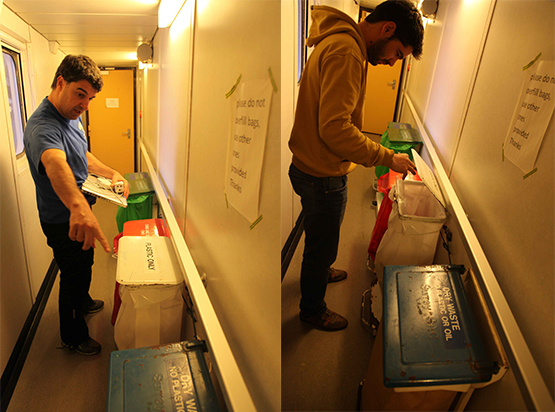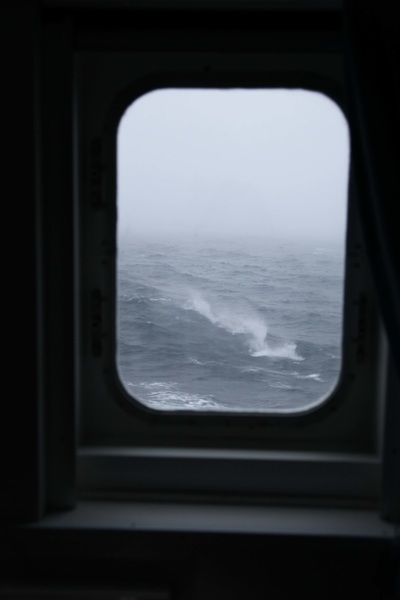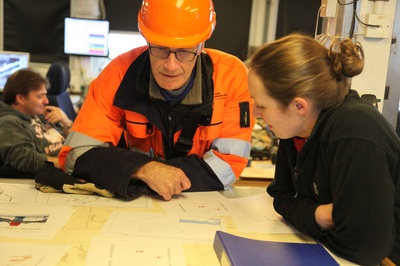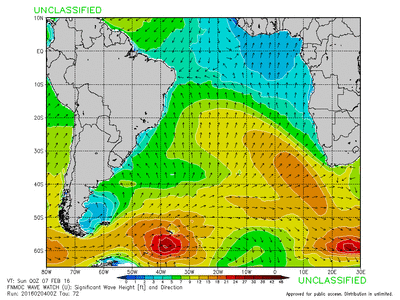|
José Xavier e José Seco O cruzeiro está recheado de curiosidades. Neste texto tentamos criar uma lista com algumas dessas curiosidades:
This research cruise is full of curiosities. Here´s some of our notes:
Hoje o vento está a 140 km/h (70 milhas/h)!!!!!!! Isso significa que o vento é tão forte que pode arrastar uma pessoa facilmente, arrancar telhados, derrubar árvores e até capotar carros. Não podemos ir para a parte de fora do navio por questões de segurança. Estamos a atravessar uma tempestade Antártica que está a assolar toda esta região da Antártida. Felizmente estamos protegidos pela Ilha Coronation (que faz parte das Ilhas Orcadas do Sul).
Uma curiosidade que nos foi dada pelo nosso colega John Horne: apenas 3% da energia do vento é transferida para a água (ou seja, o que vemos de ventos e de ondas não estão relacionados: as ondas foram formadas muito antes de aqui chegarem, e não apenas pelo vento que estamos a sentir). Se não estivéssemos protegidos, estávamos a apanhar também com ondas de mais de 8-10 metros de altura...Estamos seguros. Quanto tempo iremos ficar aqui? Fiquem em contato... Today, the winds are 140 km/h (80 miles/h)!!!!!!! This means that the wind is so strong that can easily bring down person, bring down trees or put cars upside down. We can not go outside without an autorization. We are going through a huge Antarctic storm that is passing by our study region. Happily, we are protected by Coronation Islands (one of the islands that form the South Orkneys). Uma curiosity given to us by our colleague John Horne: only 3% of the winds is transfered to the water (which means that the waves are not produced by the wind you witness now, but by storms formed somewhere far away that build the swell up (and not by the wind we have now). If we were not protected by this Island we would be in the middle of a storm with 8 to 10 meter waves...we are safe for now. But how long will be in this storm? Stay tuned... Os comentários estão fechados.
|
BLOGS DAS CAMPANHAS
|




 Feed RSS
Feed RSS
